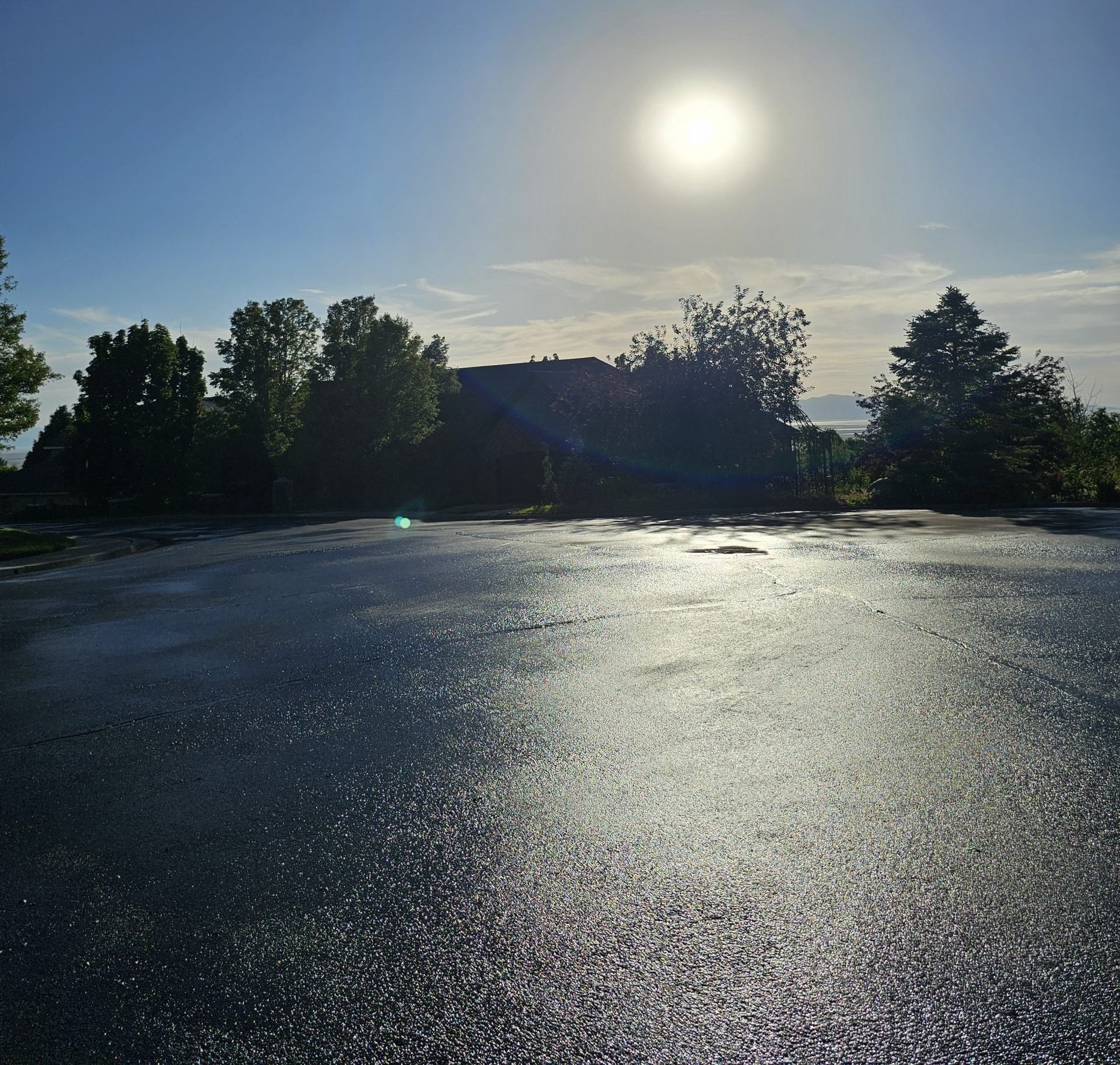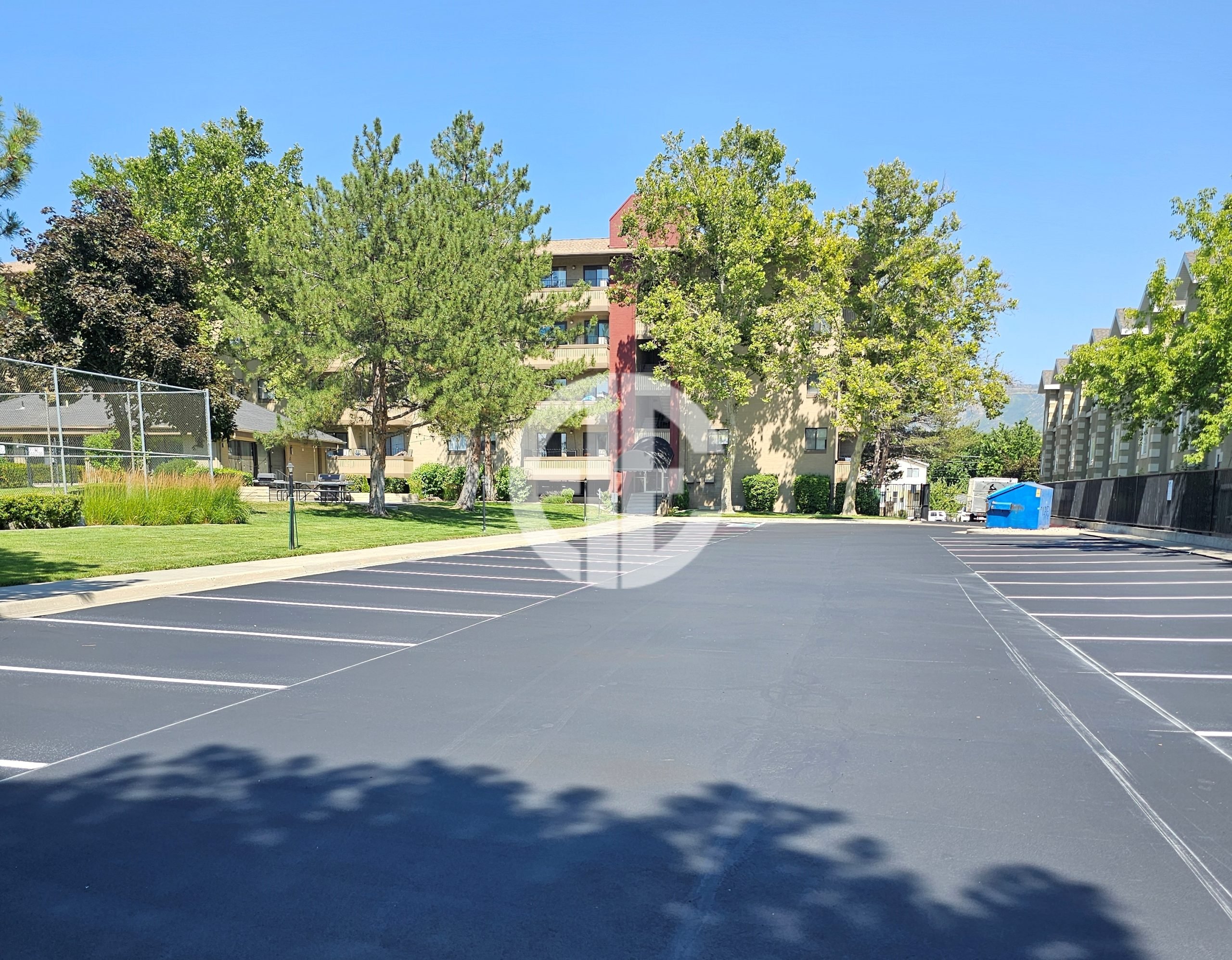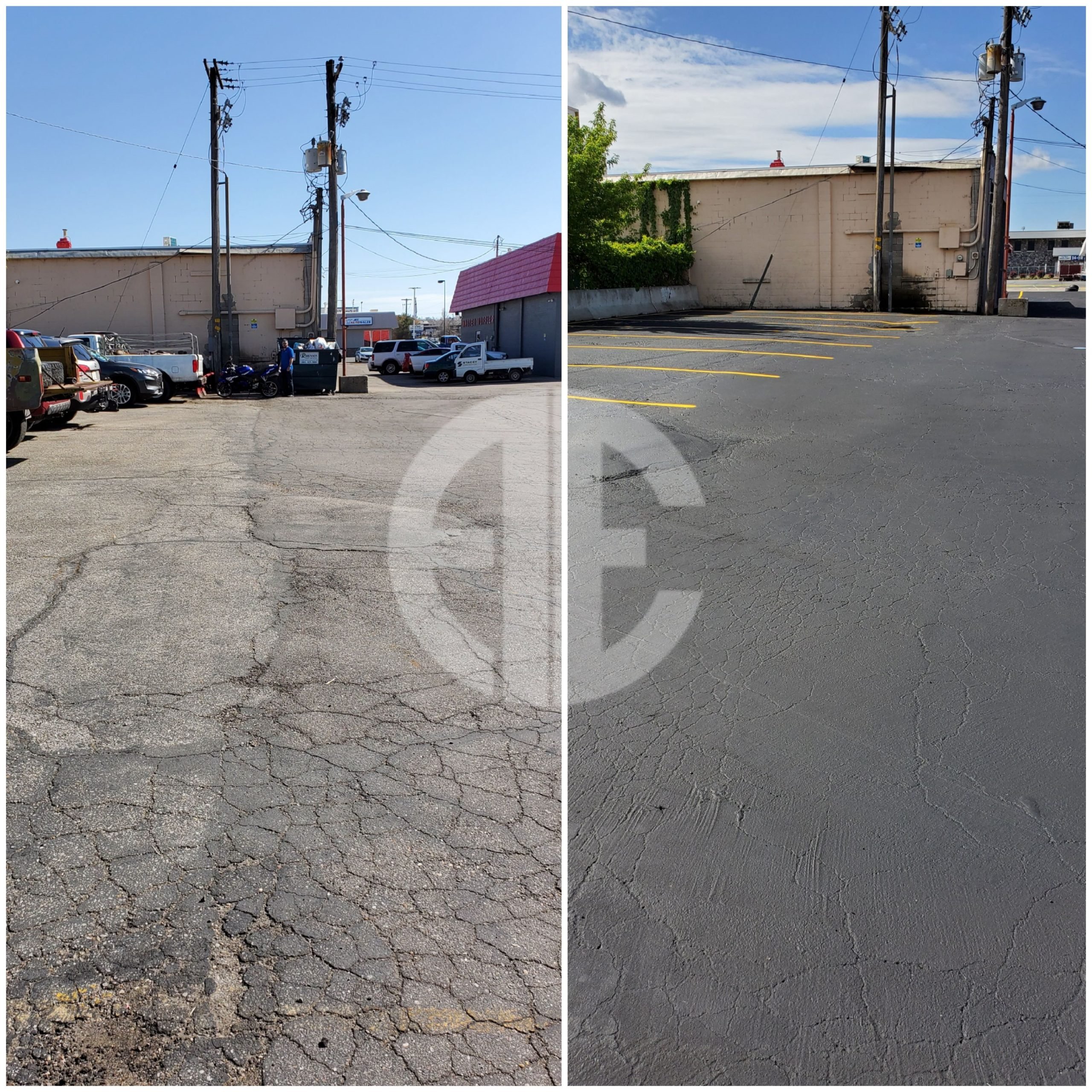Winter can be hard on Utah’s asphalt because there is routinely ice and snow on the ground. And a new driveway is especially vulnerable. Once you seal coat the driveway, approximately 6 months after installation, it will have protection from the elements. But until that time comes, you must protect your driveway through smart winter maintenance.
The following winter maintenance tips can help you take care asphalt surface of your driveway this winter months. Without legitimate planning and maintenance, your asphalt driveway can undoubtedly succumb and dramatically shortens its life. Understanding how winter weather affects your asphalt driveway and planning ahead can ensure it withstands even the harshest conditions.
ASPHALT DRIVEWAY WINTER MAINTENANCE AND REPAIR TIPS
Asphalt is naturally porous, which means that it absorbs water from the environment. When water penetrates black top in winter, it can expand and freeze beneath the surface of the driveway, causing cracks and other problems.
ASPHALT INSTALLATION
Installing asphalt in winter isn’t advisable because the installation process and the type of asphalt used. Hot asphalt arrives at the site on a heated truck, maintaining a high temperature to keep it well-mixed and ready for pouring. Initially, workers spread and level the asphalt evenly. Then, they allow it to harden for 24 hours before curing it for approximately a week.
In cold climates, asphalt hardens too quickly. There isn’t sufficient operating time to properly pour, spread, and level off the asphalt before it turns into too thick or break free.
CRACKED ASPHALT
Crack Fillers are so important that even the fine laid asphalt isn’t resistant to cracking at some stage in winter climate. That is because the ground simply expands and contracts as it freezes and thaws. During heavy snowstorms and ice melt, the asphalt or concrete expands and contracts too much, leading to ongoing cracking.
WATER DAMAGE
Water intrusion is a constant concern with asphalt, whether during heavy summer season rains or snowfalls. As cracks form at the surface, water is able to penetrate the decrease levels of the asphalt. This may cause asphalt erosion from within, ultimately ensuing in deepening cracks, potholes, and even total asphalt failure.
COLD PATCHING ASPHALT
Asphalt cracks can cause bigger problems over time, so it’s crucial to patch them quickly. Major repairs should wait until spring, but cold patching is a good temporary fix that doesn’t depend on the air or ground temperature. Patch small cracks or new potholes as soon as you see them, and schedule a more permanent repair when it gets warmer.
ASPHALT SEALCOATING
One of the quality defenses in opposition to winter climate harm to asphalt is seal coating. Before the temperature drops, ask your asphalt expert to apply a seal coat. This thin layer of protective material keeps moisture, gas, oil, and other harmful chemicals away from the asphalt. Remember to have the seal coat checked every year and reapply it every two to three years as required.
ASPHALT REPAIR
In case your asphalt takes damage over the winter, it could be salvageable inside the spring. Minor to slight damage is normally constant with a process referred to as surface patching. They start by removing a few inches of asphalt from the damaged section of parking lots and driveways.
Contractors remove damaged asphalt by shaving off a few inches from parking lots and driveways. They then carefully clean the hole before pouring new asphalt and leveling it off. Contractors perform this process, known as asphalt milling.
When the damage is severe, asphalt paving contractors typically resort to dig-out patching. They remove the entire section of failed asphalt and replace it. While expensive and time-consuming, this solution is much more cost-effective than replacing the entire area.
If the damage is enormous, resurfacing might be the quality preference. First, contractors remove the top layers of the asphalt. Then, they complete any needed structural repairs before laying fresh asphalt on top. This will dramatically improve the strength and stability of badly damaged asphalt even as restoring decrease appeal.
Of course, sometimes asphalt becomes too damaged to salvage, requiring replacement. However, it’s not easy for someone without training to assess. At Asphalt Experts, we’re always ready to offer our expert advice on winter home maintenance and repairs.
Are you ready to start your next asphalt project with a team you can count on to do the job right, on time, and on budget? We invite you to call Asphalt Experts today at +1 801-318-0949 to discuss your project and schedule an estimate. We look forward to working with you!
Trust Asphalt Experts – Your Partner for Asphalt Care Excellence in Utah.









 Clearfield
Clearfield